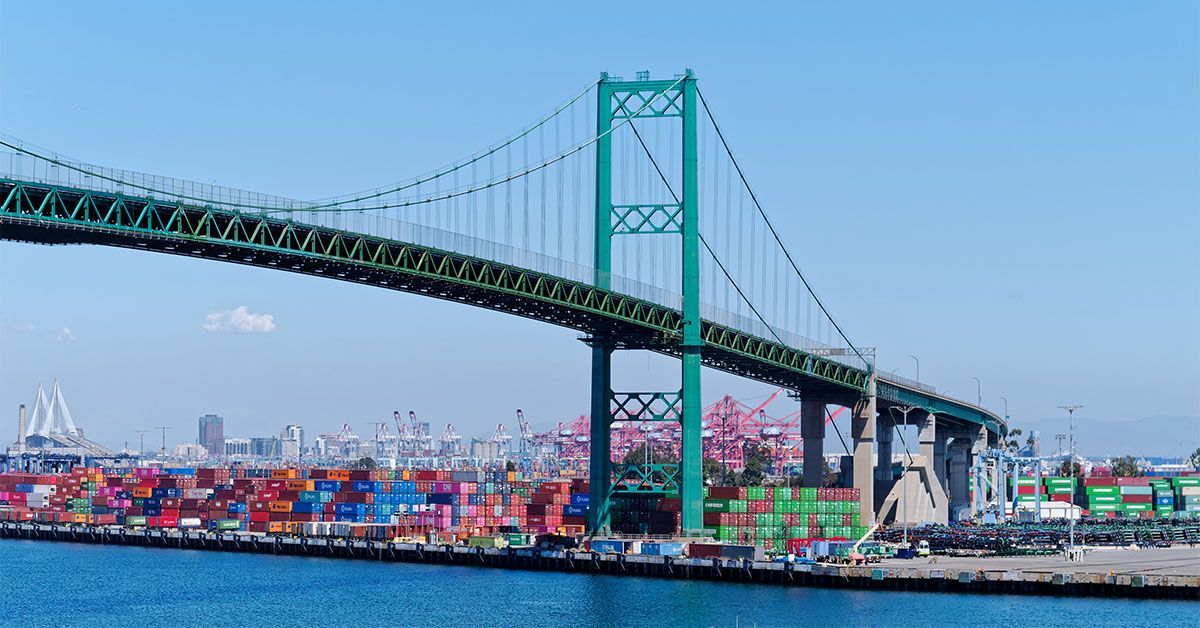How Does Flexible Warehousing Help Retailers Build Resilience?
Blog Post CTA
How Does Flexible Warehousing Help Retailers Build Resilience?
Today, retailers must be acrobatic in their warehousing and delivery strategies to meet changing and growing consumer demand. Flexible warehousing is a valuable tool that can make it easier to deliver valuable inventory when and where consumers want it. Flexible warehousing is also a key first step to building a more resilient supply chain that wins loyalty by delivering desired goods quickly and efficiently.
In 2022, Retailers Learned the Importance of Inventory Management the Hard Way
The last few years have thrown inventory management into complete disarray. From panic over-buying in 2020 to the overactive demand of 2021 and an inventory glut in 2022, retailers are struggling to maintain the proper inventory management system to anticipate and meet demand accurately.
For food retailers looking to meet changing consumer tastes and seasonal trends, flexible warehousing can be a valuable tool that makes it possible to meet demand without overpaying for warehousing and fulfillment.
With the Inventory Crisis Here to Stay, Retailers Innovate
It doesn’t have to be this way. Obviously, consumer demand is variable and always will be. However, when appropriately applied, flexible warehousing can enable innovative businesses to quickly meet increased demand without overpaying.
What is Flexible Warehousing?
Flexible warehousing helps shippers respond to changing demand and market conditions while maintaining a nimbleness that cannot be so easily achieved with traditional warehousing setups. Two types of flexible warehousing can be utilized to make food supply chains more resilient.
The first kind allows shippers to rent warehouse space on short-term contracts. Typically, when shippers pay for warehousing space, they sign contracts that commit to paying for it for several years. This means they have to project their shipping and warehousing needs (and thus, consumer demand) over several years. As we’ve seen, that’s not an exact science, and it means that shippers need to pay for the maximum amount of warehousing space they anticipate they might need. In practice, this can result in empty warehouse space for much of the year and a warehousing crunch during the busiest times. And it can make it difficult for companies to grow sustainably. With flexible warehousing, shippers can rent additional warehouse space on short-term leases during busy times or as their business grows. Shippers using flexible warehousing are not left paying for that space when they don’t need it, nor do they struggle to deliver goods when and where they’re desired.
The second form of flexible warehousing makes it easier for retailers to deliver goods during times of massive volumes. If a business experiences a huge rush of incoming demand that’s entirely beyond its usual capacity, it can use flexible warehousing to help meet that demand. Flexible warehousing services can store goods and fulfill shipments on behalf of a company. This is particularly useful for companies that experience outsized demand for short periods of time, such as a company selling turkeys around Thanksgiving. Since demand is relatively small the rest of the year, they operate a small staff. Rather than scramble to hire additional temporary labor, they can outsource fulfillment to flexible warehousing specialists who can simply and affordably fulfill those orders.
Flexible Warehousing Lets Growth-Minded Food Retailers Think Big
Flexible warehousing is a terrific tool for increasing the on-demand scalability of warehousing, especially for food retailers who may be looking for temporary storage after having secured reefer trucking capacity. With these tools to store and deliver perishable goods more efficiently, food retailers can confidently meet demand without overstocking or overspending on warehousing. They can also reduce food waste through improved inventory management. Since warehouse space can be easily attained, there’s no need to overstock select items in anticipation of future demand. And by making it easier to dispatch orders and keep on-demand items in warehouses, a flexible warehousing plan helps businesses turn inventory into cash more efficiently.
Freight Brokers: The Secret Weapon for Great Inventory Management
When it comes to better inventory and warehouse management, Entourage Freight Solutions (EFS) is the go-to for intelligent, cost-effective solutions. Their team of freight management experts can help companies forecast demand and plan shipping for a flexible warehousing solution that fits their needs. EFS covers everything from FTL to drop trailers, focusing on perishable food items. EFS’s suite of technologies helps them track market capacity and rate trends, and they also make it possible for EFS to meet shipping needs as companies respond quickly to market demand. Make it easy to plan a dynamic, flexible supply chain with EFS.
Flexible Warehousing is Changing Food Retail. Are You Ready?
Flexible warehousing and efficient transportation management boost competitiveness by delivering customers' desired goods at an affordable price point. This dynamism helps companies consistently deliver the goods customers want and build customer loyalty.
In an increasingly uncertain world, flexible warehousing will enable smart companies to keep up with changing demand and production conditions. It will also build resilience for the food retail industry so that we are all better prepared to handle supply chain disruptions like the ones we’ve seen in recent years.
A good freight broker partner can make it possible to build a resilient and efficient flexible warehousing system. With its wide-ranging expertise in food freight and flexible warehousing planning, EFS is the smartest choice for companies looking to build smart, resilient supply chains.
Contact EFS today.









